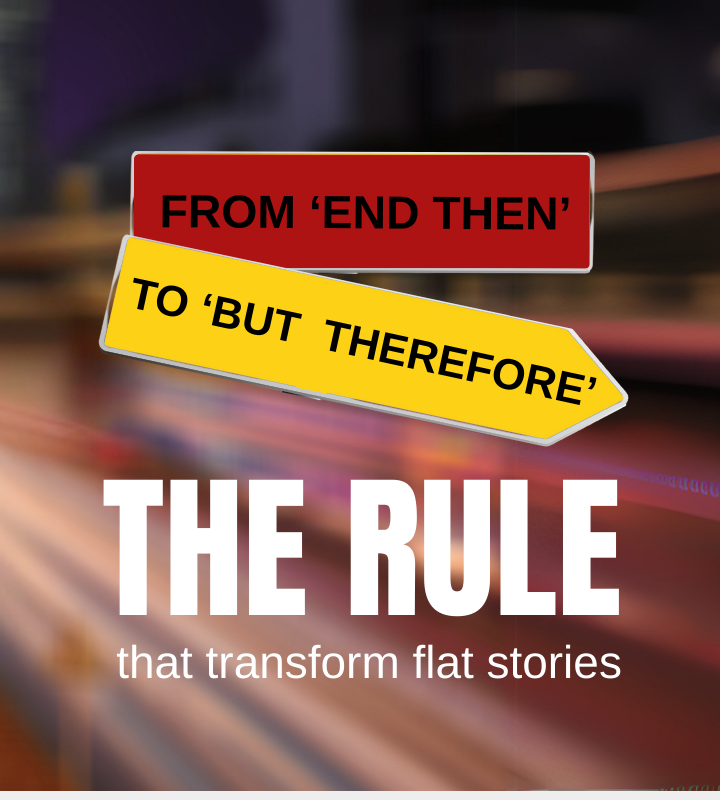Let’s be honest—page count might seem like the most boring part of screenwriting. Like, who cares if it’s 88 or 130 pages if the story is awesome, right?
Wrong.
Before anyone even reads your script, the page count is already speaking for you. And trust us—it’s either saying, “I know what I’m doing” or “This needs work.”
So let’s unpack why that little number at the bottom of the final page can make or break your chances—and how you can get it exactly right.
Your Page Count is Basically a Vibe Check
Imagine walking into a pitch meeting. You hand over your screenplay, and the exec casually flips to the end.
“110 pages. Nice.”
Instant respect. Why? Because page count is the first impression your script makes—before a single word is read.
In Hollywood, the general rule is:
One page = one minute of screen time
So, a 100-page script usually means a 100-minute movie.
Here’s how the math adds up:
- ✔️ 90–120 pages = You're in the golden zone
- ❌ Less than 80 or more than 130 = You might be sending the wrong signal
Short script? They’ll wonder if you skipped crucial development.
Extra-long script? They’ll brace themselves for bloat.
Sure, Christopher Nolan can drop a 160-page sci-fi epic and get greenlit. But if you’re just starting out, show them you speak the language first.
What Your Script Length REALLY Says About You
It’s not just about page numbers—it’s about what those numbers imply. Here’s what a reader might assume (fair or not):
| LengthWhat They Think | |
| < 75 pages | “This feels like a short film or a TV pilot.” |
| 90–120 pages | “Professional. Tight. Marketable.” |
| > 130 pages | “This writer couldn’t cut fat—or doesn’t know pacing.” |
And don’t forget: Genre matters.
Here’s a cheat sheet with familiar titles:
- Action/Sci-fi (e.g., Inception) – ~115 pages
High-concept stories need room to breathe, build worlds, and blow things up.
- Romantic Dramas (e.g., La La Land) – ~100 pages
Emotional arcs and character beats, without dragging.
- Comedies (e.g., Superbad) – ~95 pages
Comedy is about rhythm. Keep it lean, punchy, and fast.
If your rom-com is 140 pages, it better be the next Titanic meets The Notebook—and even then, it’ll raise eyebrows.
TV Scripts: A Different Beast Entirely
Thinking of writing a TV pilot? Congrats! You’re stepping into a whole new set of expectations.
While film has the 90–120 rule, TV plays by a different book:
30-Minute Comedy
- Max: 32 pages
- Examples: Brooklyn Nine-Nine, Abbott Elementary
- Fast, funny, and full of momentum. If you can’t land laughs in 30 pages, you’ve lost the room.
60-Minute Drama
- 50–60 pages
- Examples: The Bear, Breaking Bad
- These are lean, story-dense scripts. Every scene must earn its place.
Limited Series / Streaming Pilots
- Anywhere from 50 to 85 pages
- Example: Chernobyl, The Queen’s Gambit
- Streaming allows more flexibility, but don’t mistake that for “do whatever.” Discipline still counts.
Your pilot is your calling card. If it runs long and feels loose, readers will think: “They don’t get how TV works.” But if it’s tight and purposeful, you’ve just earned another read.
Streaming Changed the Game—But Not the Standards
Yes, streaming platforms like Netflix, Prime Video, and Apple TV+ have changed a lot:
- No ads = no need for hard act breaks
- Binge-watch culture = more narrative freedom
- Episodes vary in length (Black Mirror goes from 40 mins to 90!)
BUT—and it’s a big one—professionalism still matters.
Netflix execs will still bail after 10 pages if your pacing is off or your scenes meander.
You’re not just writing content. You’re building trust. A disciplined page count tells them:
“I understand this medium. I respect your time. I came to play.”
Final Takeaways: Your Script Should Feel Like It Belongs
Let’s wrap it up with some simple truths:
✅ DO:
- Stick to the 90–120 sweet spot (for films)
- Match your genre expectations
- Treat your pilot like a portfolio piece
❌ DON’T:
- Turn in a 150-page comedy (no one asked for that much funny)
- Use streaming flexibility as an excuse for flabby writing
- Think page count is “just a number”
Your screenplay is a product. Page count is the packaging. If it looks off, no one’s opening it—no matter how brilliant the story inside.
TL;DR? Here's Your Page Count Survival Guide:
| FormatIdeal Page CountDanger Zone | ||
| Feature Film | 90–120 pages | <80 or >130 |
| Comedy (TV) | 22–32 pages | >35 |
| Drama (TV) | 50–60 pages | <45 or >70 |
| Limited Series | 50–85 pages | >90 (unless it's genius) |
Write tight. Trim the fat. And remember: if they’re counting pages, you’re not dazzling them yet.
Want help tightening your script or understanding pacing? Just ask. You’ve already taken the first step by caring about the details most beginners skip.
Now go make those pages count. Literally. ✍️


 Upload Script
Upload Script 













